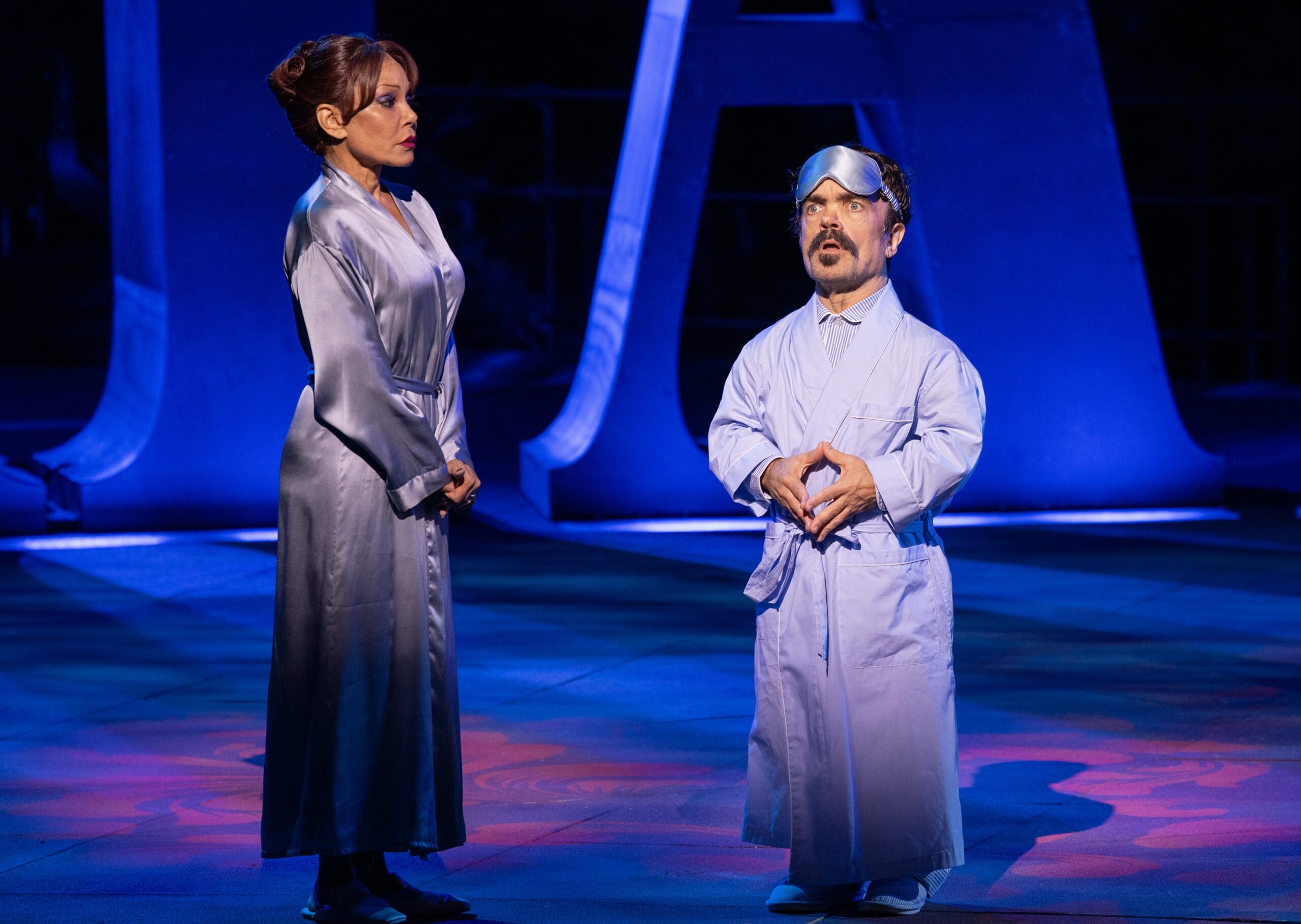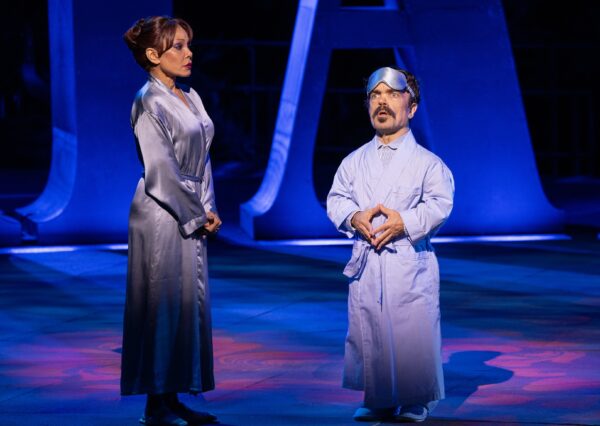
“Twelfth Night” at The Delacorte Theater (Photo: Joan Marcus)
What if I told you, in a cast full of Oscar, Tony, and Emmy winners, it’s Daphne Rubin-Vega who steals the show? I know what I’d say if someone said it to me – of course she does. But still, it’s surprising to see her slay so hard while delivering a pretty straightforward, text-faithful performance in a Shakespeare play. It’s that fidelity to playing the truth of each moment and imbuing her secondary character, Maria, Olivia’s maid, with such perspective and personality that hands this entire production of Twelfth Night over to her.
The production is pretty well-cast all around. Lupita Nyong’o and her brother Junior Nyong’o are the shipwrecked twins and, aside from their height disparity, are nearly identical in Oana Botez’s costumes and Krystal Balleza’s hair design. Viola and Sebastian’s eventual reunion at the end of the play is wrought with the kind of palpable, historied connection that only real-life siblings can bring.
Sandra Oh and Khris Davis play the Countess Olivia and Duke Orsino, though Orsino is so sidelined in Saheem Ali’s production that Davis isn’t given the space to make much of an impression, other than displaying a stunning set of muscles. The connection between Orsino and Viola, in male dress as Cesario, is inherently homoerotic, but this production is so fervently “no homo” that nothing happens between them. That sidelines only Davis.
Oh brings a giddy delight to Olivia as the play progresses. Even her despondent mourning in the beginning of the play has a kind of magnetic spark – it’s clear why people are drawn to her. It’s also clear that Oh is thrilled to be there. Her performance is grounded, but there is an unmistakable delight swirling around her.
As Maria’s cohort, John Ellison Conlee (Sir Toby Belch), Jesse Tyler Ferguson (Andrew Auguecheek), and Kapil Talwalkar (Fabian) have fun in a variety of outlandish, colorful costumes and in briefly diverting comedic situations. A scene played in a hot tub with a bong and lines of cocaine is the most fully realized of their bits, but Ali’s production seems to favor this group over any other aspect of the play.
In general, the production tilts to the broad and ridiculous, shouting to the audience how accessible it’s making the language, how fun Shakespeare can be. I admire the effort, but would have liked a touch more gravitas. If everything’s a gas, where are the stakes?
Even the tragedy of Twelfth Night – the treatment of Olivia’s steward Malvolio – doesn’t come to its full impact, despite casting Peter Dinklage and despite his wrenching out Malvolio’s pain in the final scene. His appearance in “yellow stockings and cross-gartered,” which leads to his ultimate humiliation, is, in contrast to everything else onstage, underplayed. Dinklage appears not in stockings, but in some mustardy yellow boots, with brown laces that don’t look entirely out of place with the rest of his costume. So what’s the embarrassment?
Well, Dinklage engages in some impressive, if confusing, physical comedy while showing off those boots. But even as he tossed himself around the stage, legs akimbo, I felt uncomfortable with what was happening. If the joke is not that his stockings are hideous, then the joke is on his physical stature and that’s not okay.
The wide stage of the newly refurbished Delacorte Theater is filled only with tall letters spelling out the play’s alternate title, What You Will. Otherwise, Maruti Evans’ scenic design is just a series of platforms that rise through two traps at center stage. Ali’s staging does not explore the space and results in repetitive scenes that feel longer than they are due to a lack of variety.
While leaving the theatre, someone next to me remarked that although the production is doing so much (the curtain call is an inexplicable drag ball that has nothing to do, visually or thematically, with the production), it was still boring. Real electricity can be tapped from just doing the play, from finding what is exciting about each moment in the text. Piling everything on top of it to make it “easy” and “fun” only obscures what’s great about the play in the first place.
Luckily, Daphne Rubin-Vega gets it.
